Floyd
Cramer

-
Inducted2003
-
Born
October 27, 1933
-
Died
December 31, 1997
-
Birthplace
Shreveport, Louisiana
When the piano became an integral part of Nashville arrangements in the early 1960s, Floyd Cramer shouldered most of the load. He popularized the “slip-note” technique on dozens of hits by a wide range of artists but deserves to be just as famous for his unerring taste and his understanding of what not to play.
From Shreveport to Nashville
Cramer grew up in the small sawmill town of Huttig, Arkansas. He learned piano by ear, and after graduating high school in 1951, he moved to Shreveport and found a job on the Louisiana Hayride.
Cramer arrived just as Lefty Frizzell’s records were popularizing what Cramer termed “a plinking honky-tonk type piano.” He played in that style on Jim Reeves’s “Mexican Joe” and made his first record for Abbott Records in 1953.
Aside from Owen Bradley, Poppa John Gordy, and Marvin Hughes, there were few studio pianists in Nashville when Cramer first went there in 1952 with radio and TV announcer T. Tommy Cutrer. After a year or two of commuting, Cramer talked to Chet Atkins about becoming a session pianist and left Shreveport for Nashville in January 1955.
“By 1956 and ’57, I was in day and night doing sessions,” Cramer said. One of the few records on which he played something other than piano was Jimmy Dean’s “Big Bad John”: he created the pickaxe sound effects by hanging an iron doorstopper on a coat hanger and hitting it with a hammer.
Songs
00:00 / 00:00
00:00 / 00:00
00:00 / 00:00
Popularizing the Slip-Note Style
Atkins signed Cramer to RCA as an instrumental artist in 1958. His fourth single, released in 1960, was “Last Date,” featuring the slip-note style, which Cramer picked up during the Hank Locklin session that produced “Please Help Me, I’m Falling.” The composer, Don Robertson, had sent a demo on which he played piano, sliding up into a note from the one beneath, and Cramer incorporated the technique into his style.
“It’s been done for a long time on the guitar by people like Maybelle Carter,” Cramer said, “and by lots of people on the steel guitar. Half-tones are very common, but the style I use mainly is a whole-tone slur which gives more of a lonesome, cowboy sound.”
It was at Atkins’s suggestion that Cramer wrote “Last Date” to showcase the slip-note style. It was a bigger pop hit than country hit, climbing to #2; the only record keeping it from #1 was Elvis Presley’s “Are You Lonesome Tonight?” another record Cramer played on.
Floyd Cramer was named the Academy of Country Music’s top keyboardist each year from 1969 through 1974.
Videos
“Back in the Saddle Again” with Jimmy Dean
The Jimmy Dean Show, 1964
“Careless Love” with Chet Atkins, Jimmy Dean, and Julie Rogers
The Jimmy Dean Show, 1965
Photos
-
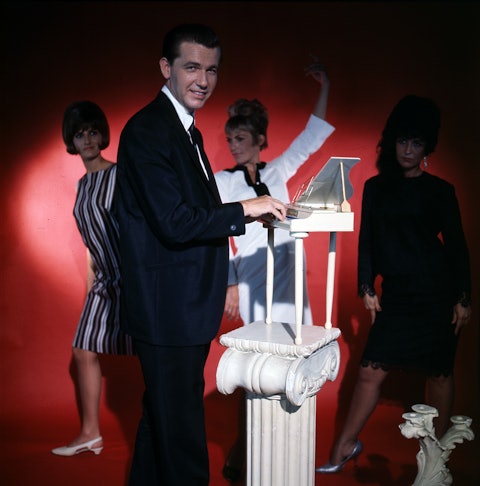
Floyd Cramer, 1966. Photo by Walden S. Fabry Studios.
-
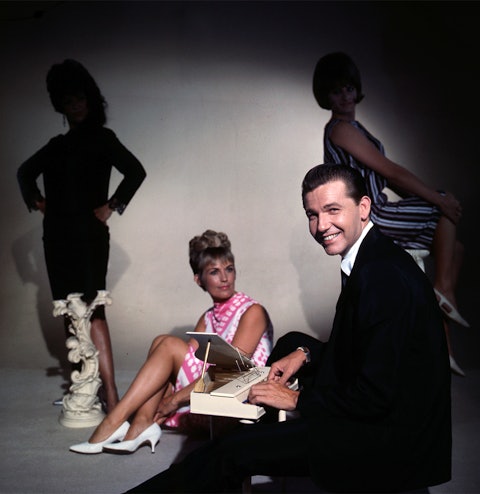
Floyd Cramer, 1966. Photo by Walden S. Fabry Studios.
-
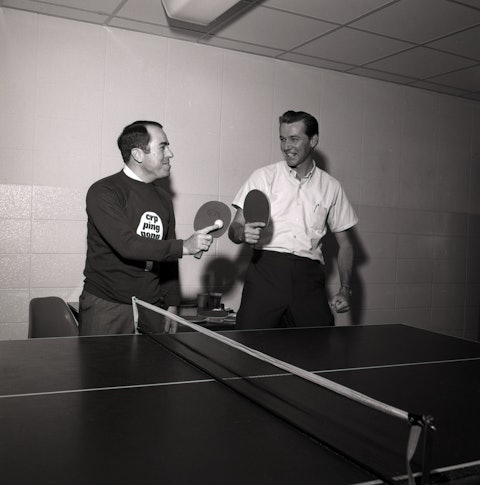
From left: Floyd Glinert, Columbia Records national sales manager, and Floyd Cramer playing table tennis, 1966. Photo by Walden S. Fabry Studios.
-
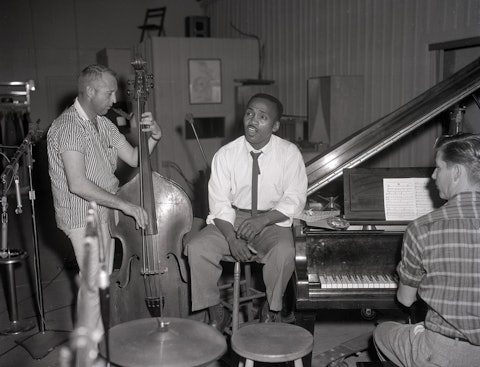
From left: Lightnin’ Chance, Jimmy Sweeney, and Floyd Cramer, late 1950s. Photo by Elmer Williams.
-
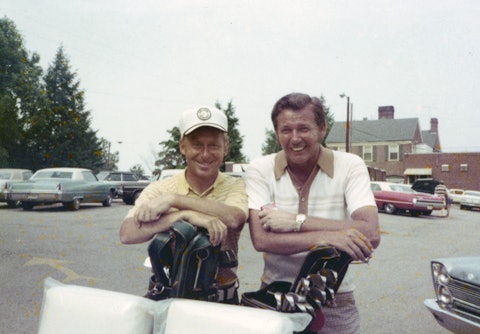
From left: Bill Walker and Floyd Cramer, 1972.
Longevity in the Studio
By the mid-1960s, Cramer was established as an album act, recording prolifically for RCA and touring widely with labelmates Atkins and saxophonist Boots Randolph. He was named the Academy of Country Music’s top keyboardist each year from 1969 through 1974.
Cramer stayed active in the studio for years thereafter and continued to perform occasional concerts and record television-marketed albums until sidelined by cancer, which eventually took his life. The same year he joined the Country Music Hall of Fame, he was also elected to the Rock & Roll Hall of Fame.
— Colin Escott
Adapted from the Country Music Hall of Fame® and Museum’s Encyclopedia of Country Music, published by Oxford University Press



